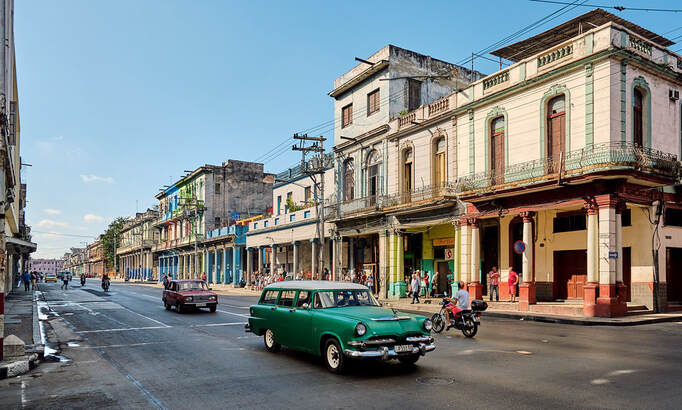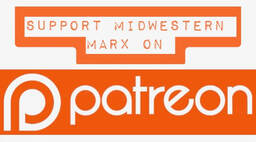|
To understand the Cuban Embargo, one must understand that it is only one aspect in the broader goal of America to rule over Cuba. The US has long had an interest in colonizing Cuba. In 1823, Secretary of State John Quincy Adams wrote a letter to U.S Minister to Spain Hugh Nelson about the possibility of annexing Cuba within the next fifty years. The Cuban sugar industry at that time had been incredibly lucrative and drew the attention of American investors. Twenty five years later, in 1848, James Polk offered to buy Cuba from Spain for $100,000,000. This offer was rejected. Though the US may have never formally colonized Cuba, its economic domination of the island could be comparable to that of any colonial power. By the 1870s, 75% of Cuba’s sugar was exported to the US. In 1895, US investments in Cuba were valued up to $95,000,000. Cuba’s industries and economy quickly became subordinated to US corporations. In 1894, 90% of Cuba’s exports went to the US and 38% of its imports were from the US. Cuba served as a valuable geopolitical outpost for the US. It would be valuable in defending Florida and New Orleans, along with serving as an outpost and springboard for further economic and political control of Latin America. While Cuba might have technically gained independence from the US in 1902, the Platt Amendment, however, kept Cuba in a continual state of colonial subjugation. The Platt Amendment allowed the US to intervene in Cuba at any time. It also set up US control of Cuba’s foreign policy and its public finances. In addition, much of Cuba’s wealth remained in US hands. In essence, the Platt Amendment and the presence of US corporations reduced the notion of Cuban independence to a myth. By the 1920s two thirds of Cuba’s sugar production was controlled by US companies and in 1929, US investments in Cuba reached almost a billion dollars and 62% of it went into the sugar industry. By the 1950s Cuba was the largest recipient of US aid and the US controlled almost all the important industries in Cuba. By 1955, 90% of telecommunications and electric services, 40% of the sugar industry, and 50% of public service railways were in the hands of American investors. Four years later, the US controlled 90% of all the mines, 80% of the utilities, and almost all the cattle ranches and the entire oil industry. However, this vast investment in Cuba did not benefit the majority of Cubans, instead much of this wealth was repatriated back to the US or consumed by the American and Cuban elites on the island. That’s not to forget of course that US investment in Cuba heavily favored multinationals, and many of these corporations didn’t have to pay taxes to the Cuban government and were allowed to keep their profits, thus doing very little to develop an independent Cuban economy or help the lives of everyday Cubans. In fact, life for everyday Cubans was quite miserable under Batista and American imperialism. In 1953, the average Cuban family made six dollars a week and 15-20% of the labor force was unemployed. The average salary of a rural Cuban was $91. Sugar companies also owned 75% of the arable land and only employed 25,000 people full time and 500,000 people as part time workers during the harvest season which only lasted for about two to four months, for the rest of the year these people were relegated to poverty and unemployment. Only 2% of people in Cuba had running water and 9% of people had electricity. The vast majority of people in the rural areas lived in huts. The life expectancy was 59 years and infant mortality was 60 out of 1000 live births. The notions that Cuba prior to Castro was a ritzy tropical paradise couldn’t be further from the truth. The vast majority of the population lived in poverty and a system of racial segregation--as horrible as the one in the US if not worse--was institutionalized and barred Afro-Cubans from accessing any employment opportunities other than domestic or manual labor. The only people who truly benefited from Batista’s Cuba were white wealthy landowners, business elites, and the professional class. These were the people that fled immediately after the revolution, not common workers or campesinos. The Cuban revolution was a true revolution of independence. It freed Cuba from the neo-colonial clutches of the United States which subjected the Cuban economy to the whim of monopolistic expansion by American corporations. There is no political independence without economic independence. Castro’s land reform and nationalization of major industries allowed Cuba to buck the reins of US imperialism and chart its own path of development without the destructive interference of an imperialistic power. The US sees an independent Cuba as a threat to its grasp over the rest of Latin America and its own status as a global hegemonic power. Therefore, it can’t let Cuba’s socialist development succeed. Though the US has attempted various methods to sabotage the development through means of terrorism and assasination, the Embargo, otherwise known as the blockade has been the most enduring inhibitor to a prosperous and socialist Cuba. The blockade is incredibly thorough and applies not only to U.S. nationals and businesses based in the United States but also to businesses and nationals outside of the US as well. References https://www.presidency.ucsb.edu/documents/speech-senator-john-f-kennedy-cincinnati-ohio-democratic-dinner https://kawsachunnews.com/the-defense-of-the-cuban-revolution-is-a-struggle-against-fascism https://www.mtholyoke.edu/acad/intrel/kencuba.htm https://cri.fiu.edu/us-cuba/chronology-of-us-cuba-relations/ https://www.jstor.org/stable/2009288?seq=2#metadata_info_tab_contents https://www.loc.gov/rr/hispanic/1898/hernandez.html https://www.ourdocuments.gov/print_friendly.php? flash=false&page=&doc=55&title=Platt+Amendment+%281903%29 AuthorN.C. Cai is a Chinese American Marxist Feminist. She is interested in socialist feminism, Western imperialism, history, and domestic policy, specifically in regards to drug laws, reproductive justice, and healthcare. Archives November 2021
0 Comments
Leave a Reply. |
Details
Archives
July 2024
Categories
All
|


 RSS Feed
RSS Feed